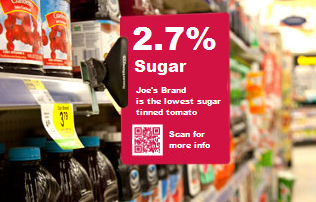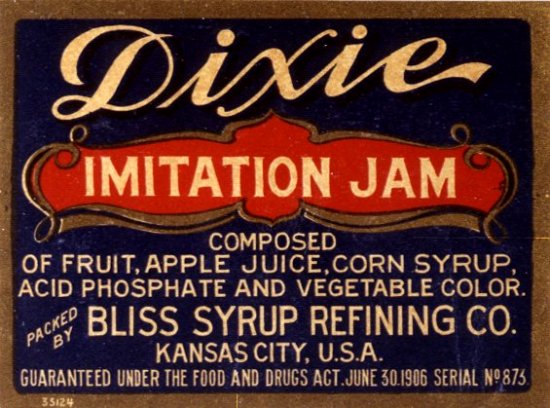
Sugar taxes are all the rage, but the evidence that they deliver better health is non-existent. Fortunately there is a much easier way to get all the benefits (and more) without introducing a great big new tax.
Jamie Oliver and the Australian Heart Foundation are two prominent current advocates for a tax on sugary drinks. Their reasoning is clear, sin taxes (like those on tobacco and alcohol) clearly change behaviour. And sugar consumption is definitely a behaviour that needs to change. The research is unequivocal – sugar is a primary player in the vast majority of chronic disease epidemics sweeping the world.
For every 10% increase in the price of a pack of ciggies, we can expect a 4% decrease in consumption (in high income countries and as part of a general package of actions against smoking). And we know that similar maths is at work when it comes to sugar water. Mexico implemented a 10% ‘soda Tax in January 2014 and by the end of that year, consumption had decreased by 6%.
Smoking tobacco is the primary cause of lung cancer. So convincing people not to smoke is likely to (and does) result in a measurable health outcome. The substitute for cigarettes is nicotine patches and sprays. They still deliver the addictive substance but without the health impacts of cigarettes.
Unfortunately the same cannot be said for sugar. Sugar is the addictive substance and is also the substance causing the damage. Taxing one source of sugar will certainly reduce consumption from that source but detailed studies have been so far unable to detect a significant health benefit.
This is likely to be because people simply find another source of sugar. Or, as the author of one recent study put it people simply “find alternate ways to offset the added cost of the tax, by buying in bulk or choosing generic brands.” I would add, or, get their sugar from the other 90% of the food supply containing sugar.
In recognition of that loophole, Sarah Wilson wants to tax more than just sugar water. She is campaigning for a tax on “soft drinks, their artificially sweetened alternatives and all foods and beverages that contained hidden sugars.”
The good news for Sarah is that John Howard anticipated her call and implemented just such a tax in Australia on 1 July 2000. The bad news is that it has failed to positively change behaviour or health outcomes in the 15 years since.
The GST applies a 10% tax to all food and beverages except:
- all meats for human consumption (except prepared meals or savoury snacks)
- fruit, vegetables, fish and soup (fresh, frozen, dried, canned or packaged)
- bread and bread rolls without a sweet coating (such as icing) or filling
- unflavoured milk, cream, cheese and eggs
- tea and coffee (unless ready-to-drink)
- bottled drinking water
- baby food and infant formula
- cooking ingredients, such as flour, sugar, pre-mixes and cake mixes
- fats and oils for cooking
- spreads for bread (such as honey, jam and peanut butter)
- spices, sauces and condiments
- fruit or vegetable juice (of at least 90% by volume of juice of fruit or vegetables)
- breakfast cereals.
To make the GST a perfect sugar tax, we’d need to remove breakfast cereals (why are they even there? – I smell a lobbyist), sugar as an ingredient, cake mixes, juices, sauces, condiments and some spreads from the list of exemptions (and add unsweetened yoghurt). But it is otherwise pretty close and I suspect that tinkering would be (politically) significantly easier than convincing the public to swallow a whole new tax on everything.
The big question is, would it change behaviour? Unfortunately based on evidence to date, the answer would have to be resounding no. When everything in a food category contains sugar, taxing sugar gives the consumer no choice but to pay more tax (and buy sugar anyway).
Luckily there is a simple way for a government (that really cared about our health) to do something about sugar consumption. Simply require our supermarkets to tell us the lowest sugar choice in any food category. The label above is my amateur vision of what that might look like.
Shelf labels allow customers to vote with their wallet by buying the product that has the least sugar. Companies who want part of that action will ‘reformulate’ quickly and the market driven race to the bottom should persistently drive down the sugar content of the food supply.
One other teeny tiny change would be necessary. Foods which are not subject to the sugar tax (aka the GST) must pass that saving on to the consumer. Shops would not be permitted to sell tax free bottled water at the same price as taxable coke (as they currently do).
We don’t need more tax, we need a way for the consumer to reward companies that make foods with less (or no) added sugar. Shelf labels are simple, direct, inexpensive and likely to produce material long term change in our food supply and our health. So let’s put the tax stick away and reach for the information carrot to get this mule moving.
Also published on RendezView

















Great idea! Giving us more information – simple and effective.
Great idea. Why not contact GetUp to see if they will run a petition?
https://www.getup.org.au
David, David, David
You naive young whipper-snapper.
There’s nothing sexy about a new food/pricing label – not when compared to a glamorous sugar tax.
I mean – you could develop a jingle around a sugar tax, or bright flashy ads or even a catch phrase – but something as practical and impactive as a label?
It just has no ‘selling’ point. (Let’s face it – improved health via sensible choice is hardly something ‘the people’ are buying tin droves these days!)
And current Australian politics (and I do mean politics NOT government) needs something slick to present to the ‘people’. When competing against instant perfectly edited images via smartphones, 24/7 – how is a politician to compete?
I love your theory – but I suspect I may in the minority 🙁
Keep sharing it though, because you just never know. Someone with half a brain and the actual power to make change . . . . may be listening. We can live in hope.
<3
Pia
I would support a tax on sugar water (including juice) as drinking fructose appears to lead to higher average doses of fructose. I would support a broad based fructose tax (only exemptions being fresh fruit/veggies) at comparable levels of tobacco – this would substantially reduce consumption
The reason there is so little accurate info on labels is because the crew running labeling laws are the same mob making gazzillions out of flogging this sweet poison to the masses. And the ‘government’ – God bless them – potter around rubbing their hands together saying, ‘Oh, yes, yes, a sugar tax…what an excellent idea!’
As if the mob donating to the Lab. and Lib. parties would be over-joyed with that.
It’s quite apparent no-one really wants to know what goes on behind closed ‘party-room’ doors. You poor buggers!
One day you’ll actually understand that money, profit ego and power drive politics; not some imbecile idea that they are all up there looking after the electorate’s interests…hahahahahaha!
You poor buggers.
Agree with a lot of your points. However consumers of sugary soft drinks don’t need a label to tell them that a zero-sugar version is available – they make a conscious decision to drink the full sugar version. Sugary soft drinks should be double the price of diet soft drinks & bottled water.